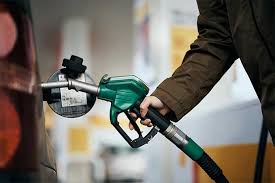Aliko Dangote, founder of Dangote Petroleum Refinery, has urged the federal government to fully remove petrol subsidies, a decision that could lead to a significant price hike, pushing petrol costs as high as N1,800 per litre.
Dangote made this statement during an interview with Bloomberg, just nine days after his refinery began producing petrol, reinforcing his stance that it is the right time to end the subsidy regime.
Dangote, whose refinery has a daily capacity of 650,000 barrels, emphasized that subsidies are not sustainable and create an unnecessary financial burden on the government. He argued that the current pricing of petrol in Nigeria, which is about 60 percent of the cost in neighboring countries, is contributing to fuel smuggling across porous borders.
“We are a private company; we have to make a profit. The government cannot afford the amount of subsidies we are paying. Our price of gasoline is about 60 percent the price of our neighboring countries, and we have porous borders, so it is not sustainable,” Dangote explained.
Before September 15, petrol was sold for N650 per litre at Nigerian National Petroleum Company Limited (NNPCL) outlets. However, with the commencement of production at the Dangote Refinery, prices surged to N1,010 per litre. Analysts predict that without government subsidies, prices could rise even further, potentially hitting N1,800 per litre.
Dangote described subsidies as a sensitive issue, noting that they encourage inflated pricing and put unnecessary strain on government resources. He added, *“Subsidy is a very sensitive issue. Once you are subsidising something, people will bloat the price, and the government ends up paying what they shouldn’t be paying. It’s time for the subsidy to go.”*
The Nigerian government, under President Bola Tinubu, had previously declared an end to the petrol subsidy regime on May 29, 2023. However, there have been conflicting reports since then. In August, Tinubu reportedly approved a request by NNPC to use the 2023 dividends for subsidy payments, while the NNPC initially denied the existence of any subsidy, only to later confirm that the federal government owed it N7.8 trillion for subsidising petrol.
Despite the confusion, Dangote emphasized that his refinery’s operations would bring transparency to Nigeria’s actual fuel consumption, which has been difficult to track accurately. “Some people say it is 60 million litres per day, others say less. But now, by producing locally, we can count and account for every litre. We will track every truck or ship that loads from us to ensure the fuel stays in Nigeria,” he said.
He further referenced Saudi Arabia’s decision to raise gasoline prices, pointing out that petrol in Nigeria is now cheaper than in Saudi Arabia, which he said “does not make sense.”
Watch the video below;
https://x.com/nigeriantribune/status/1838503198316777602?s=19
In a related development, the former governor of Kaduna state, Nasir el-Rufai, revealed in April that the federal government was spending even more on subsidies than before. However, Ajuri Ngelale, the former presidential spokesperson, and NNPC officials have consistently maintained that subsidies had been entirely removed.
As the debate on subsidy removal continues, the potential rise in petrol prices looms large. With Dangote Refinery now producing locally, the nation will soon get a clearer picture of its real consumption rates, which could further inform the government’s final decision on subsidy removal.
For now, all eyes remain on the Dangote Refinery and the government’s next steps, as Nigerians brace for possible economic impacts in the wake of a full subsidy removal.




























